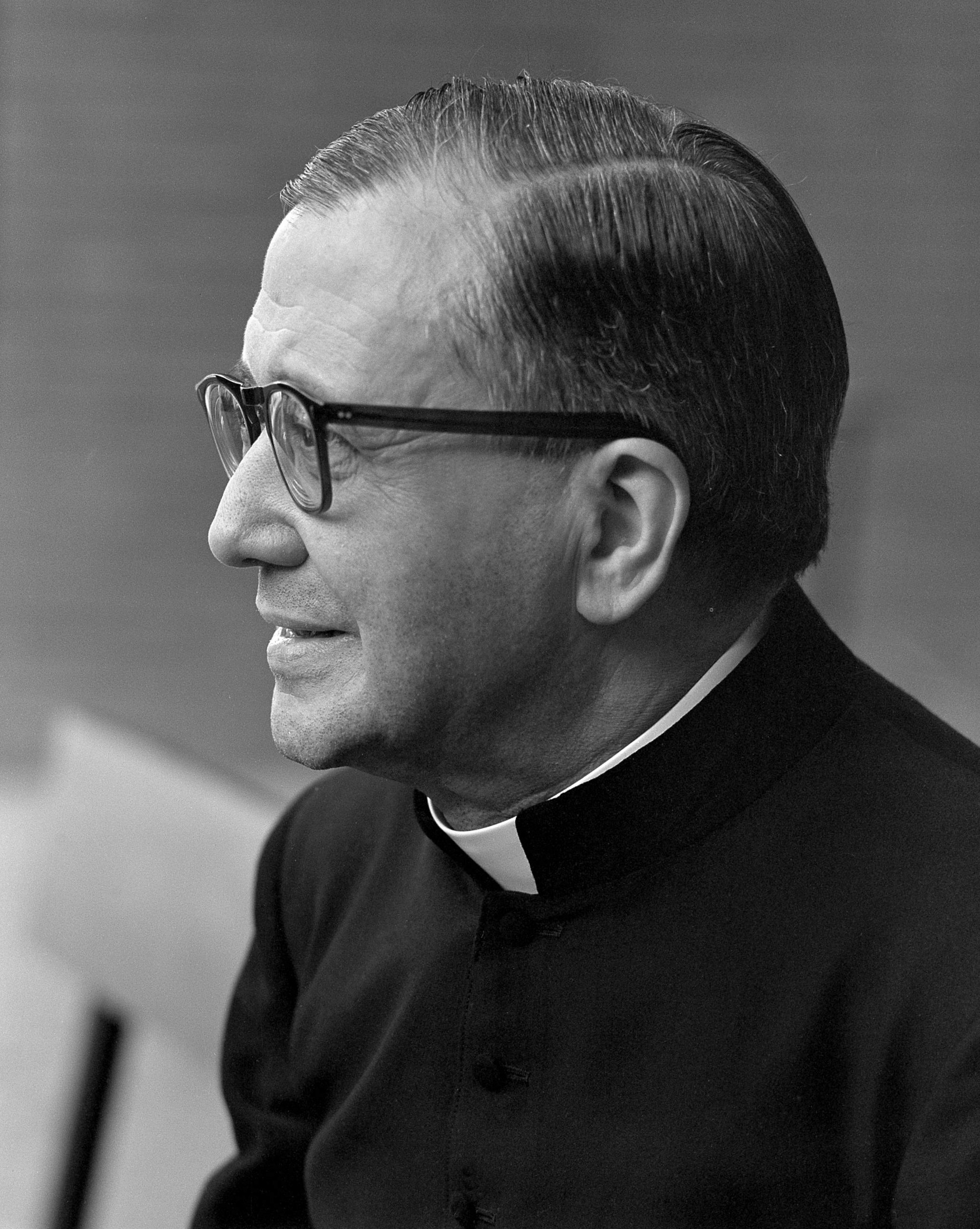Josemaría Escrivá
 Josemaría Escrivá de Balaguer y Albás (9 January 1902 – 26 June 1975) was a Spanish Catholic priest who founded Opus Dei, an organization of laypeople and priests dedicated to the principle of everyday holiness. He was canonized by Pope John Paul II in 2002.
Josemaría Escrivá de Balaguer y Albás (9 January 1902 – 26 June 1975) was a Spanish Catholic priest who founded Opus Dei, an organization of laypeople and priests dedicated to the principle of everyday holiness. He was canonized by Pope John Paul II in 2002.Escrivá studied for the priesthood in Logroño and Zaragoza and was ordained in the latter in 1925. He then moved to Madrid, where he pursued doctoral studies in civil law at the Central University. After the start of the Spanish Civil War in 1936, Escrivá fled from Madrid, via Andorra and France, to the city of Burgos, which at the time served as the headquarters of the rebel Nationalist forces under General Francisco Franco. After the military triumph of the Nationalists, Escrivá returned to Madrid and completed his doctorate in 1939. His principal work was the initiation, government and expansion of Opus Dei. His best-known publication is ''The Way'', which has been translated into 43 languages and has sold several million copies. Escrivá settled in Rome in 1946. In 1955 he received a doctorate in theology from the Lateran University.
Escrivá and Opus Dei have attracted attention and controversy within the Catholic Church and in the worldwide press, including allegations of secrecy, elitism, cult-like practices, collaboration with the dictatorship of General Franco in Spain (1936–1975) and other right-wing political causes, as well as financial malfeasance. After his death, Escrivá's beatification and canonization also generated considerable comment and contention. Several former members of Opus Dei and associates of Escrivá have publicly questioned his personal character and holiness.
Sources close to Opus Dei, and some independent journalists such as the Vatican analyst John L. Allen Jr., have argued that many of those accusations are unproven and originate with Escrivá's personal enemies. John Paul II and other Catholic leaders have endorsed Escrivá's teachings on the universal call to holiness, the role of the laity, and the sanctifying effect of ordinary work. According to Allen, among Catholics, Escrivá is "reviled by some and venerated by millions more". Provided by Wikipedia
-
1
-
2
-
3
-
4
-
5
-
6
-
7
-
8